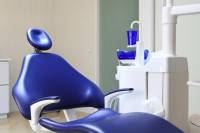1. Acceptable total A/R: One month of collections or less (12%) 2. A/R & pending claims. 20% over 30 days acceptable and dwindling. >50% of AR in 0-30 days <30% of AR in 30-60 days <18% of AR in 60-90 days <2% of AR in 90+ days 3. You want to see past due balances of 30, 60, and 90 days so that you can generate the correct letter or call as needed. You should also run an Insurance Aging Report at least weekly because you don't want those going past 30 days. Start collecting after 20 days. I recommend working the...
Dental Practice Management
This checklist was developed based on the work habits of a hygienist with an “old school” work ethic who gives her employer an honest day’s work and then some. She doesn’t need to be told what to do when there is downtime. She just does it. Hygiene downtime happens, and you have the right to have your salaried hygienist take a longer lunch break when there’s an open slot before lunch or if the last hygiene slot of the day is open however, as many staff live paycheck to paycheck, I recommend getting the employee’s agreement to stay productive instead. ...
Can you imagine baseball without any rules? Or, driving in rush hour traffic with no laws or guidelines governing what to do when the lights turn green or red? The obvious result would be confusion and chaos. This same logic applies to every organization. If there are no guidelines and rules for employees to follow they will not know what is expected of them. Frustration, confusion and unnecessary disagreements then happen. For these reasons, it is vital that you have both a general policy manual as well as individual manuals for each position in your dental practice. In addition to achieving your...
While it is important to understand what is unacceptable conduct for your dental staff, it is equally important to understand what is “acceptable conduct” in a dental practice so you can concentrate on the positive not the negative. In order to create a positive working environment I encourage you and your staff to practice the following code as much as possible: 1. Ensure patients have your full interest, receive top quality care, and feel valued. 2. Exceed patients’ expectations for treatment, communications and office experience. 3. Be courteous and considerate toward patients and fellow staff. 4. Conduct yourself in an honest,...




